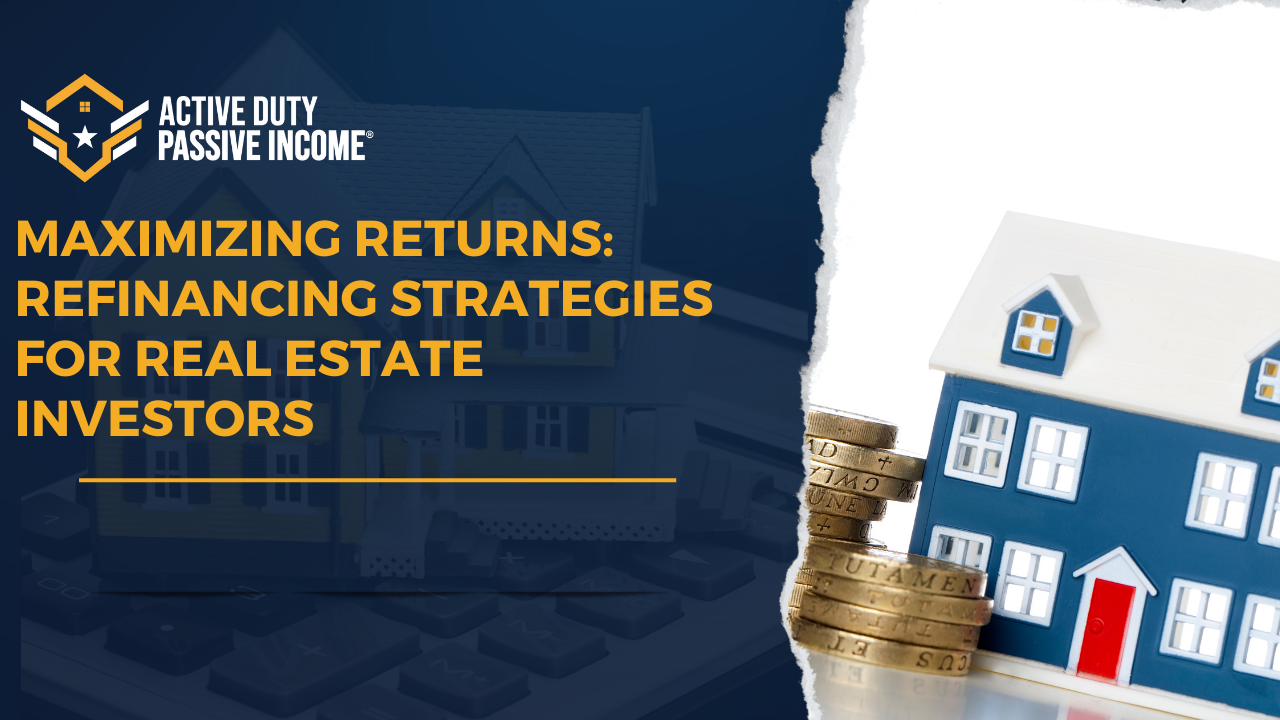Ready to unlock the full potential of your real estate investments? Discover how refinancing can supercharge your returns and secure your financial future.
In the dynamic world of real estate investment, maximizing returns is the ultimate goal. One powerful tool in an investor’s arsenal is refinancing existing loans. Refinancing allows investors to optimize their financial structures, unlock equity, and increase cash flow. However, it’s not without risks and considerations. In this blog, we’ll delve into the when, why, and how of refinancing for real estate investors, exploring its benefits, potential pitfalls, and key strategies for success.
Understanding Refinancing
Refinancing is essentially replacing an existing mortgage with a new one, often with better terms. For real estate investors, this process can offer several advantages:
Lower Interest Rates: One of the primary reasons investors refinance is to take advantage of lower interest rates, which can significantly reduce monthly payments and overall borrowing costs.
Cash Out: Refinancing allows investors to tap into the equity they’ve built up in a property, providing access to cash for renovations, acquisitions, or other investment opportunities.
Restructuring Debt: Investors can use refinancing to restructure debt, such as converting short-term loans into long-term ones or consolidating multiple loans into a single, more manageable payment.
Improved Cash Flow: By lowering monthly payments or extending the loan term, refinancing can increase cash flow, providing investors with more funds for property improvements, debt service, or other investments.
When to Refinance
Knowing when to refinance is crucial for maximizing its benefits. Some opportune times for refinancing include:
Decrease in Interest Rates: When interest rates drop significantly below the rate of your current loan, it may be a good time to refinance and lock in a lower rate.
Equity Growth: As property values appreciate and equity increases, investors can leverage this equity through refinancing to fund additional investments or improve cash flow.
Change in Financial Situation: If an investor’s financial situation improves, such as an increase in income or credit score, they may qualify for better loan terms through refinancing.
Loan Maturity: Refinancing before the end of a loan term can prevent balloon payments or other potential financial challenges.
Strategies for Successful Refinancing
While refinancing offers numerous benefits, it’s essential to approach it strategically to avoid potential pitfalls. Here are some key strategies for successful refinancing:
Evaluate Current Loan Terms: Before considering refinancing, investors should carefully review the terms of their existing loans, including interest rates, prepayment penalties, and any other relevant clauses. Understanding these terms will help investors determine if refinancing is financially beneficial.
Shop Around for Rates and Terms: Don’t settle for the first offer. Shop around with multiple lenders to compare rates, terms, and closing costs. A lower interest rate or better terms can significantly impact the long-term profitability of the investment.
Consider Loan-to-Value Ratio: Lenders typically have requirements regarding the loan-to-value (LTV) ratio, which compares the loan amount to the property’s value. Investors should be aware of these ratios and ensure they have sufficient equity to qualify for refinancing.
Factor in Closing Costs: Refinancing often involves closing costs, including appraisal fees, loan origination fees, and title insurance. Investors should factor these costs into their calculations to determine the true savings or benefits of refinancing.
Beware of Prepayment Penalties: Some loans may have prepayment penalties, which can negate the benefits of refinancing. Investors should carefully review their existing loan documents to understand if such penalties apply and factor them into their decision-making process.
Potential Pitfalls to Avoid
While refinancing can be advantageous, there are potential pitfalls that investors should be mindful of:
Overleveraging: Tapping into equity through refinancing can increase leverage, which magnifies returns in a rising market but also amplifies losses in a downturn. Investors should exercise caution to avoid overleveraging and maintain a healthy balance between debt and equity.
Underestimating Costs: Refinancing isn’t free. Closing costs and other fees can eat into potential savings or cash-out proceeds. Investors should carefully weigh these costs against the benefits of refinancing to ensure it’s financially worthwhile.
Ignoring Market Conditions: Refinancing decisions should consider current market conditions, including interest rates, property values, and economic trends. Failing to assess these factors could result in missed opportunities or unfavorable outcomes.
Short-Term Focus: Investors should consider the long-term implications of refinancing decisions, rather than solely focusing on short-term gains. A decision that improves cash flow or unlocks equity today may have repercussions down the line, particularly if interest rates rise or market conditions change.
In conclusion, refinancing can be a powerful tool for real estate investors seeking to optimize their financial structures, unlock equity, and increase cash flow. By strategically evaluating when and how to refinance, investors can maximize returns and achieve their investment goals. However, it’s essential to approach refinancing with careful consideration, weighing the potential benefits against potential pitfalls and market conditions. With the right strategy and foresight, refinancing can be a valuable asset in an investor’s toolkit, enhancing the profitability and sustainability of their real estate investments.









